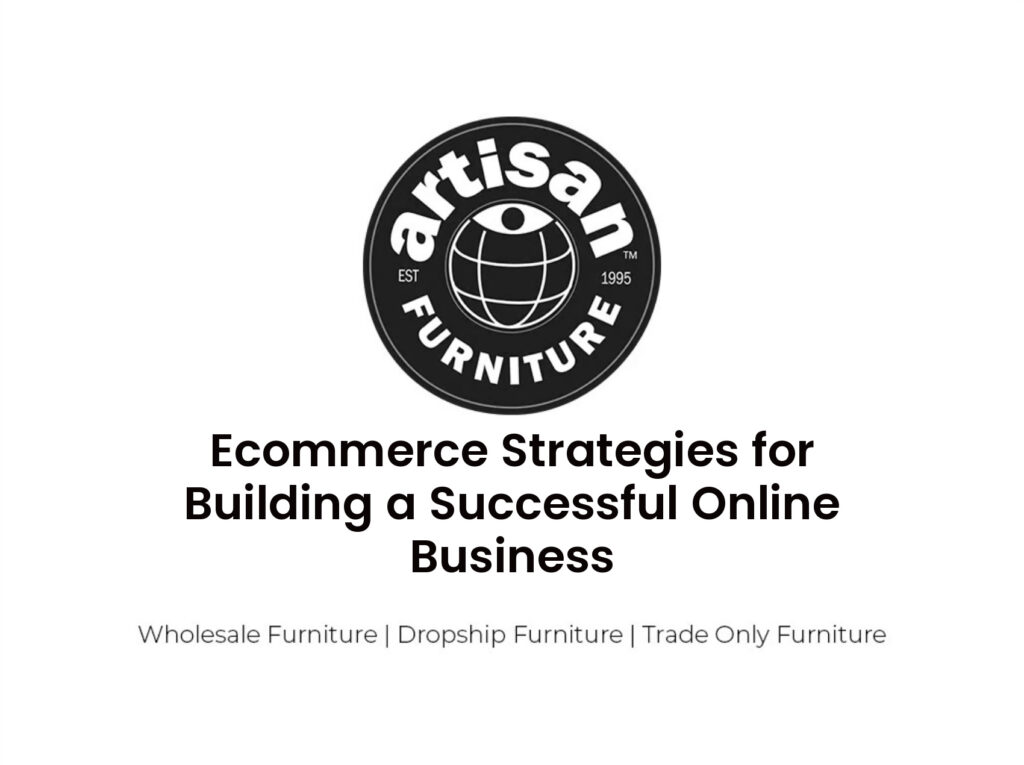Ecommerce strategies for Building a successful online business
Ecommerce continues to grow at a staggering rate, with global ecommerce sales projected to reach $7.4 trillion by 2025. As technology evolves and consumer behaviour changes, new opportunities arise for businesses to adapt and thrive in the online marketplace. This article provides an in-depth look at key strategies and trends shaping the future of ecommerce in 2023.
Table of Contents
ToggleChoosing the Right Ecommerce Platform
One of the first steps in starting an online business is selecting the right ecommerce platform. Some popular options include:
- Shopify – A user-friendly platform great for small businesses. It offers powerful ecommerce features and integrates with marketing, payment, and shipping tools.
- WooCommerce – As a WordPress plugin, WooCommerce provides flexibility but requires more technical expertise.
- BigCommerce – Geared towards large enterprises, BigCommerce provides robust and scalable solutions.
- Volusion – An all-in-one solution with deep analytics and affordable pricing plans.
- Square Online – Syncs online and in-person sales data for businesses using Square POS.
Consider the type of business, level of customization needed, scalability requirements, and built-in features when choosing a platform.
Optimizing for Mobile Commerce
With rising mobile usage, it’s essential to optimize ecommerce sites for smartphones and tablets. Utilizing responsive web design creates a seamless experience across devices. Integrating mobile wallet payment options like Apple Pay also provides convenience. Push notifications help engage customers and promote sales on mobile.
Leveraging Social Commerce
Integrating social media platforms like Instagram and TikTok as sales channels can help ecommerce businesses reach wider audiences. Social commerce involves utilizing platforms like live video shopping and shoppable posts to inspire consumers to purchase.
Personalization and Segmentation
Leveraging customer data to deliver personalized recommendations and tailored content is increasingly important. Segmenting customers into groups allows for targeted marketing campaigns optimized for engagement.
Voice Commerce
Voice-enabled devices like Amazon Alexa allow for a new avenue of online shopping. Optimizing product listings for voice search and enabling voice-activated purchases will prepare ecommerce businesses for this emerging trend.
Focusing on Speed
Page load speed and website performance significantly impacts conversions. Optimizing images, minimizing HTTP requests, and regular performance monitoring ensures fast load times. Fast shipping and fulfilment is also crucial.
Securing Customer Data
As cyberthreats persist, securing customer data is mandatory. Encrypting sensitive information, utilizing multifactor authentication, regular security audits, and implementing AI fraud prevention provides protection.
Conversational Commerce with Chatbots
Chatbots enhance customer experience by providing instant, 24/7 support. They can handle common queries, recommend products, track orders, and connect customers to human agents when needed.
The Importance of Reviews
Product reviews and ratings build trust while user-generated content like images and videos provide social proof. All of this organic content improves SEO as well. Requesting and displaying reviews across channels boosts conversion rates.
Continued Advances in Augmented Reality
AR allows customers to visualize products in their own space. Virtual try-on for makeup and apparel will continue to rise. Integrating AR experiences sets businesses apart.
The Growth of Ecommerce Marketplaces
Selling on marketplaces like Amazon, eBay, and Etsy expands reach. To stand out, focus on compelling listings, excellent customer service, and competitive pricing. Utilizing Fulfillment by Amazon (FBA) also streamlines logistics.
Recurring Revenue Through Subscriptions
Subscription ecommerce provides predictable revenue streams. Offering tiered subscription packages with bonuses like expedited shipping encourages customers to upgrade their plans.
The Necessity of SEO Strategies
Employing effective SEO leads to increased organic traffic and conversions. This includes keyword research, meta tag optimization, blogging, and leveraging tools like Google Merchant Center.
Managing Shipping and Logistics
Finding the right shipping partners ensures reliable and timely delivery. Offering multiple shipping options satisfies customer needs. Integrating order tracking provides transparency. Optimizing packaging also reduces costs.
The Importance of Security and Trust
Data breaches damage consumer trust and directly impact revenue. Implementing comprehensive security protects customers and the business itself. Utilizing SSL, regularly testing systems, and adhering to compliance standards ensures safety.
Ecommerce success requires establishing credibility, delivering excellent service, and providing a frictionless shopping experience. Businesses must continually adapt to emerging technologies while keeping the customer at the forefront. By implementing these strategies, ecommerce companies can gain a competitive edge and achieve sustainable growth.


